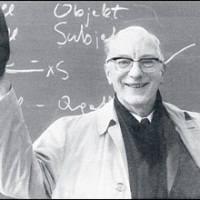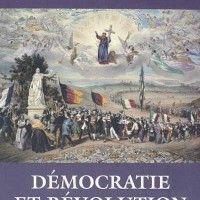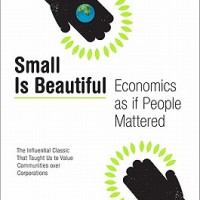La gauche semble décidée à renouer avec le fanatisme de 1793, en prônant un « changement de civilisation » – l’expression est de Mme Taubira – et, à tout le moins, un changement radical de société.
Elle a le droit de le proposer. Nous avons le devoir de nous y opposer.
Ce changement radical, Mme Taubira l’a évoqué pour le « mariage pour tous ». Il est bien évident qu’une société qui ne reposerait pas sur la famille comme cellule de base serait profondément différente de tout ce que nos aïeux ont connu.
Le mariage dit « pour tous » n’est pas, comme son nom le laisse entendre, l’élargissement aux couples homosexuels de l’accès au mariage, mais la fin du mariage. Si le mariage n’est plus cette institution particulière qui lie exclusivement et durablement un homme et une femme pour créer une cellule familiale, il n’est plus rien du tout. Autant dire que le droit des contrats commerciaux s’applique à ce contrat particulier !
Mais ce changement radical est bien plus vaste. Nous le voyons, en particulier, avec la question de l’immigration, de plus en plus voulue par nos dirigeants comme un changement de peuple.
Et l’État de droit lui-même disparaît dans cette prétention exorbitante du législateur.
Opérer un changement de civilisation par une simple loi est ahurissant. Fonder un changement de civilisation sur une prétendue majorité présidentielle (je rappelle que la majorité des Français a refusé de voter Hollande, même au 2e tour) est absurde.
Nous savions déjà que la gauche avait une conception bizarre de la légitimité. Le « Vous avez juridiquement tort parce que vous êtes politiquement minoritaires » du Laignel de 1981 résonne encore à nos oreilles.
Aujourd’hui, il y a pire. Le rapporteur du projet Taubira au sénat, Jean-Pierre Michel, grand défenseur de la Terreur, a osé répondre au philosophe Thibaut Collin : « Ce qui est juste, c’est ce que dit la loi. Et celle-ci ne se réfère pas à un ordre naturel, mais à un rapport de force à un moment donné. » Ce qui signifie, si les mots ont un sens, que les lois de Nuremberg, la législation soviétique ou le génocide cambodgien étaient « justes ».
Curieuse conception de la justice ! En tout cas, il est certain que nous rompons avec la civilisation judéo-chrétienne. Mais ce qui vient derrière, ce ne sont pas les lendemains qui chantent, mais bel et bien la barbarie. L’actuelle majorité en portera l’écrasante responsabilité. Mais qu’elle ne compte pas sur nous pour être complices silencieux de cette barbarie !
Read the complete article in Les 4 verites
Posted on Feb 14th, 2013 in
Communism,
History,
Politics |
0 comments
A propos de Stéphane Courtois, Jean-Pierre Deschodt, Yolène Dilas-Rocherieux (dir.), Démocratie et Révolution. Cent manifestes de 1789 à nos jours, Cerf/Presses universitaires de l’ICES, coll. Démocratie ou totalitarisme, 1 195 p., 2012, 42 €.
Il s’agit dans cet ouvrage de l’étude de cent manifestes fondateurs, inédits, oubliés ou atypiques, lesquels constituent le résumé de deux cents ans d’histoire des idées politiques. Leur nature est extrêmement diverse mais leur objet unique : Déclaration des droits de l’homme et du citoyen, manifestes communistes et socialistes, tracts anarchistes, manifestes esthétiques Dada ou futuristes, programmes d’Hitler et de Mussolini, encycliques de Pie XI, déclarations de la Guerre froide, charte altermondialiste, manifestes féministes, des Frères musulmans, de la contre-culture hacker ou transhumaniste… Depuis la Révolution française, deux mots, deux notions, deux grands courants de pensée et d’action hantent le monde, tantôt naviguant de conserve, tantôt s’affrontant violemment : démocratie et révolution.
Read the complete article in Revue Catholica
Posted on Feb 13th, 2013 in
Economy,
Philosophy,
Politics |
0 comments
A little over a century ago, on August 16, 1911, the great visionary economist E. F. Schumacher was born in the German city of Bonn. An icon of the early Green movement, few people seem to know that Schumacher’s vision was inspired by the great papal encyclicals of Leo XIII and Pius XI or that Schumacher himself was a convert to Catholicism.
Disgusted with the Nazis, Schumacher moved to England before the beginning of the second world war and remained there for the remainder of his life. Best known for his international bestseller,
Small is Beautiful, published in 1973, he is, without doubt, one of the most influential thinkers of the twentieth century. The enormous impact of
Small is Beautiful, which became the bible of a new generation of environment-conscious politicians, economists and campaigners, makes it one of the most important books of its time. Jimmy Carter, following his election to the presidency in 1976, invited Schumacher to the White House for a photo-shoot. Pictures of Carter and Schumacher, arm in arm, were splashed across the newspapers, indicating, so the president would have us believe, that he was in tune with the latest thinking on “economics as if people mattered”, which was the sub-title of Schumacher’s book.
There was, however, a secret behind Schumacher’s book that his millions of admirers did not know. It was a secret that some of them would not wish to know. It was, in fact, a secret that many of them still want to keep secret. The shocking secret is that Schumacher was hugely influenced in his writing of Small is Beautiful by the teaching of the Catholic Church, a fact that appears to remain a major embarrassment to today’s E. F. Schumacher Society if its deafening silence on the subject is anything to go by.
At first skeptical that the popes ‘in their ivory tower’ could have anything of worth to teach him in the sphere of economics, Schumacher read Leo XIII’s Rerum novarum (1891) and Pius XI’s Quadragesimo anno (1931) and was astonished at the insight that the social teaching of the Church had to offer. It was, however, the promulgation of another Papal Encyclical, Paul VI’s Humanae vitae (1968), which would have the most immediate impact on his life. This Encyclical prompted his wife and one of his daughters to seek instruction in the Catholic faith. The message that Humanae vitae conveyed, wrote Schumacher’s daughter, ‘was an affirmation and support for marriage, for women … who had given themselves entirely to their marriages and who felt acutely the pressure from the world outside that shouted ever louder that homebound, monogamous relationships were oppressive to women and prevented them from “fulfilling themselves”.’ Although, at the time, Schumacher did not feel able to follow his wife and daughter into the Church, he concurred with their view of the Encyclical. ‘If the Pope had written anything else,’ he told a friend, ‘I would have lost all faith in the papacy.’
On 29 September 1971 Schumacher was finally received into the Catholic Church. Two years later his worldwide bestseller was published, a work, both popular and profound, which almost single-handedly redefined the public perception of economics and its impact upon the human person and his environment. It is, in fact, ironic that the modern environmental or ‘green’ movement derives its weltanschauung not from any ‘new age’ philosophy or neo-pagan ‘religion’ but from the expertise and wisdom of a world-renowned economist who found inspiration from the social doctrine of the Church.

Eric Voegelin often is regarded as a major figure in 20th-century conservative thought—one of his concepts inspired what has been a popular catchphrase on the right for decades, “don’t immanentize the eschaton”—but he rejected ideological labels. In his youth, in Vienna, he attended the famous Mises Circle seminars, where he developed lasting friendships with figures who would be important in the revival of classical liberalism, such as F.A. Hayek, but he later rejected their libertarianism as yet another misguided offshoot of the Enlightenment project. Voegelin has sometimes been paired with the British political theorist Michael Oakeshott, who greatly admired his work, but he grounded his political theorizing in a spiritual vision in a way that was quite foreign to Oakeshott’s thought. Voegelin once wrote, “I have been called every conceivable name by partisans of this or that ideology… a Communist, a Fascist, a National Socialist, an old liberal, a new liberal, a Jew, a Catholic, a Protestant, a Platonist, a neo-Augustinian, a Thomist, and of course a Hegelian.”
But whatever paradoxes he embodied, Voegelin was, first and foremost, a passionate seeker for truth. He paid no attention to what party his findings might please or displease, and he was willing to abandon vast amounts of writing, material that might have enhanced his reputation as scholar, when the development of his thought led him to believe that he needed to pursue a different direction. As such, his ideas deserve the attention of anyone who sincerely seeks for the origins of political order. And they have a timely relevance given recent American ventures aimed at fixing the problems of the world through military interventions in far-flung regions.
Voegelin was born in Cologne, Germany in 1901. His family moved to Vienna when he was nine, and there he earned a Ph.D. in political science in 1922, under the dual supervision of Hans Kelsen, the author of the constitution of the new Austrian republic, and the economist Othmar Spann. He subsequently studied law in Berlin and Heidelberg and spent a summer at Oxford University mastering English. (He commented that his English was so poor when he arrived that he spent some minutes wondering why a street-corner speaker was so enthusiastic about the benefits of cheeses, before he realized the man was preaching about Jesus.) He then traveled to the United States, where he took courses at Columbia with John Dewey, Harvard with Alfred North Whitehead, and Wisconsin with John R. Commons, where he said he first discovered “the real, authentic America.”
Upon returning to Austria, he resumed attending the Mises Seminar, and he published two works critical of the then ascendant doctrine of racism. These made him a target of the Nazis and led to his dismissal from the University of Vienna after the Anschluss. As with many other Austrian intellectuals, the onslaught of Nazism made him leave Austria. (He and his wife managed to obtain their visas and flee to Switzerland on the very day the Gestapo came to seize his passport.) Voegelin eventually settled at Louisiana State University, where he taught for 16 years, before coming full circle and returning to Germany to promote American-style constitutional democracy in his native land. The hostility generated by his declaration that the blame for the rise of Nazism could not be pinned solely on the Nazi Party elite, but must be shared by the German people in general, led him to return to the United States, where he died in 1985.
During his lifelong search for the roots of social order, Voegelin came to understand politics not as an autonomous sphere of activity independent of a nation’s culture, but as the public articulation of how a society conceives the proper relationship of its members both to one another and to the rest of the cosmos. Only when a society’s political institutions are an organic product of a widely shared and existentially workable conception of mankind’s place in the universe will they successfully order social life. As a corollary of his understanding of political life, Voegelin rejected the contemporary, rationalist faith in the power of “well-designed,” written constitutions to ensure the continued existence of a healthy polity. He argued that “if a government is nothing but representative in the constitutional sense, a [truly] representational ruler will sooner or later make an end of it… When a representative does not fulfill his existential task, no constitutional legality of his position will save him.”
For Voegelin, a truly “representative” government entails, much more crucially than the relatively superficial fact that citizens have some voice in their government, first of all that a government addresses the basic needs of “securing domestic peace, the defense of the realm, the administration of justice, and taking care of the welfare of the people.” Secondly, a political order ought to represent its participants’ understanding of their place in the cosmos. It may help in grasping Voegelin’s meaning here to think of the Muslim world, where attempts to create liberal, constitutional democracies can result in Islamic theocracies instead: the first type of government is “representative” in the narrow, constitutional sense, while the second actually represents those societies’ own understanding of their place in the world.
Voegelin undertook extensive historical analysis to support his view of the representative character of healthy polities, analysis that appeared chiefly in his great, multi-volume works History of Political Ideas—which was largely unpublished during Voegelin’s life because his scholarship prompted him to change the focus of his research—and Order and History. This undertaking was more than merely illustrative of his ideas, since he understood political representation itself not as a timeless, static construct but as an ongoing historical process, so that an adequate political representation for one time and place will fail to be representative in a different time or for a different people.
Imagine someone appealing to Lord Baden-Powell, founder of the Boy Scouts, to justify the activities of gangs in Los Angeles.
Why not? Lord Baden-Powell wanted boys to do risky things, and what’s more dangerous than running guns or smuggling cocaine or fighting another gang in a shooting spree? He enjoined upon the Scouts a stern code of honor and loyalty, and who is more loyal than a new recruit for the Crips? Who is more willing to shed his blood for the honor of the gang?
Imagine someone appealing to Michelangelo to justify porn. Why not? Michelangelo painted nudes all over the Sistine Chapel, and Hustler and Penthouse are full of nudes. Michelangelo endured the disgruntlement of the prudish, so that the figures in his Last Judgment were later provided with discreet veils and tunics and loincloths. And aren’t Hustler and Penthouse stuck underneath the counter at convenience stores? Michelangelo admired the sculpture of ancient Greece; those ancient Greeks, for their part, traded in vases depicting acts of pedophilia. So why should a busy stockbroker in a hotel not be allowed to relax in front of a television, watching whatever delights his sophisticated tastes?
Imagine someone appealing to Florence Nightingale to justify doctor-dosed suicide. She wanted to relieve suffering, didn’t she? Imagine someone appealing to Saint Francis of Assisi to justify looting for fun and profit. His heart was with the poor, no? Imagine someone appealing to Saint Catherine of Siena to justify the modern feminist. Why, Saint Catherine dared to rebuke cardinals and popes!
Imagine a lawyer returning his fee when he loses a case; imagine a television pundit suddenly admitting that he doesn’t know what he is talking about; imagine a Hollywood starlet speaking English; imagine the Cubs winning the World Series; imagine anything most absurd, and you have not yet approached the absurdity of those who claim that Catholic Social Teaching implies the existence of a vast welfare state, bureaucratically organized, unanswerable to the people, undermining families, rewarding lust and sloth and envy, acknowledging no virtue, providing no personal care, punishing women who take care of their children at home, whisking the same children away from parental supervision and into schools designed to separate them from their parents’ views of the world, and, for all that, keeping whole segments of the population mired in a cycle of dysfunction, moral squalor, and poverty, while purchasing their votes with money squeezed by force from their neighbors.
Read the complete article in Catholic Education Resource Center



